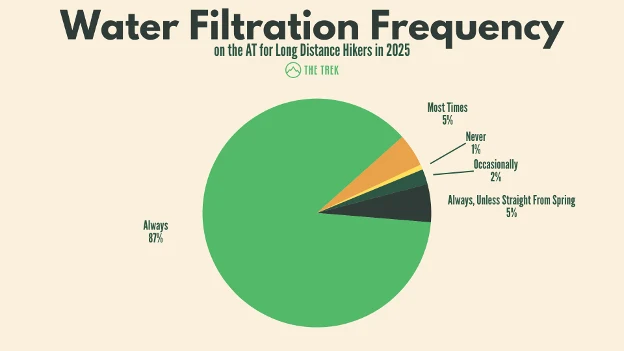Fortune Journals: Melhorias na Prevalência de Doenças Diarreicas com a Implementação de Filtros de Água de Ponto de Uso no Assentamento Informal de Kibera, Quénia
Fortune Journals: Melhorias na Prevalência de Doenças Diarreicas com a Implementação de Filtros de Água de Ponto de Uso no Assentamento Informal de Kibera, Quénia

Fortune Journals: Melhorias na Prevalência de Doenças Diarreicas com a Implementação de Filtros de Água de Ponto de Uso no Assentamento Informal de Kibera, Quénia
YouTube video highlight
A introdução de filtros de ponto de utilização nos agregados familiares de um assentamento informal densamente povoado reduziu a diarreia e outros problemas relacionados com a saúde.
Read more about the projectMelhorias na prevalência de doenças diarreicas com a implementação de filtros de água de ponto de utilização na povoação informal de Kibera, Quénia
Resumo
Antecedentes: Há cada vez mais provas da eficácia dos filtros de água de ponto de utilização na prevalência da diarreia em numerosos contextos mundiais, tanto em estudos observacionais como em experiências aleatórias. No entanto, a maioria dos estudos centra-se em zonas rurais. Neste estudo, utilizamos inquéritos domiciliários de auto-relato e testes seleccionados de água potável para monitorizar um conjunto de aproximadamente 10.000 agregados familiares que receberam filtros de água de ponto de utilização Sawyer®, formação em WASH e Albendazole em Kibera, no Quénia.
Resultados: Os modelos estatísticos que têm em conta os factores de confusão estimam que a prevalência de diarreia auto-relatada em 2 semanas desceu de 52,7% para 2,2% após cerca de 70 dias de utilização do filtro. Os testes de campo caracterizaram a maioria das fontes de água (18 de 25) como não seguras para coliformes totais, muitas para E. coli (6 de 25) e uma fonte acima das directrizes de saúde da OMS para o arsénico. Não houve evidência de uma diferença na prevalência de diarreia auto-relatada entre os agregados familiares que receberam Albendazole na distribuição e os que não receberam (p>0,05).
Conclusões: A introdução de filtros de ponto de utilização nos agregados familiares de uma povoação informal densamente povoada reduziu a diarreia e outros problemas relacionados com a saúde. São necessários futuros estudos controlados e aleatórios com medidas objectivas de saúde para garantir o impacto causa-efeito dos filtros, e o estudo da longevidade dos filtros no terreno continua a ser uma necessidade crítica.
O estudo completo e os resultados podem ser consultados aqui.
Fortune Journals: Melhorias na Prevalência de Doenças Diarreicas com a Implementação de Filtros de Água de Ponto de Uso no Assentamento Informal de Kibera, Quénia


Melhorias na prevalência de doenças diarreicas com a implementação de filtros de água de ponto de utilização na povoação informal de Kibera, Quénia
Resumo
Antecedentes: Há cada vez mais provas da eficácia dos filtros de água de ponto de utilização na prevalência da diarreia em numerosos contextos mundiais, tanto em estudos observacionais como em experiências aleatórias. No entanto, a maioria dos estudos centra-se em zonas rurais. Neste estudo, utilizamos inquéritos domiciliários de auto-relato e testes seleccionados de água potável para monitorizar um conjunto de aproximadamente 10.000 agregados familiares que receberam filtros de água de ponto de utilização Sawyer®, formação em WASH e Albendazole em Kibera, no Quénia.
Resultados: Os modelos estatísticos que têm em conta os factores de confusão estimam que a prevalência de diarreia auto-relatada em 2 semanas desceu de 52,7% para 2,2% após cerca de 70 dias de utilização do filtro. Os testes de campo caracterizaram a maioria das fontes de água (18 de 25) como não seguras para coliformes totais, muitas para E. coli (6 de 25) e uma fonte acima das directrizes de saúde da OMS para o arsénico. Não houve evidência de uma diferença na prevalência de diarreia auto-relatada entre os agregados familiares que receberam Albendazole na distribuição e os que não receberam (p>0,05).
Conclusões: A introdução de filtros de ponto de utilização nos agregados familiares de uma povoação informal densamente povoada reduziu a diarreia e outros problemas relacionados com a saúde. São necessários futuros estudos controlados e aleatórios com medidas objectivas de saúde para garantir o impacto causa-efeito dos filtros, e o estudo da longevidade dos filtros no terreno continua a ser uma necessidade crítica.
O estudo completo e os resultados podem ser consultados aqui.
Fortune Journals: Melhorias na Prevalência de Doenças Diarreicas com a Implementação de Filtros de Água de Ponto de Uso no Assentamento Informal de Kibera, Quénia


Melhorias na prevalência de doenças diarreicas com a implementação de filtros de água de ponto de utilização na povoação informal de Kibera, Quénia
Resumo
Antecedentes: Há cada vez mais provas da eficácia dos filtros de água de ponto de utilização na prevalência da diarreia em numerosos contextos mundiais, tanto em estudos observacionais como em experiências aleatórias. No entanto, a maioria dos estudos centra-se em zonas rurais. Neste estudo, utilizamos inquéritos domiciliários de auto-relato e testes seleccionados de água potável para monitorizar um conjunto de aproximadamente 10.000 agregados familiares que receberam filtros de água de ponto de utilização Sawyer®, formação em WASH e Albendazole em Kibera, no Quénia.
Resultados: Os modelos estatísticos que têm em conta os factores de confusão estimam que a prevalência de diarreia auto-relatada em 2 semanas desceu de 52,7% para 2,2% após cerca de 70 dias de utilização do filtro. Os testes de campo caracterizaram a maioria das fontes de água (18 de 25) como não seguras para coliformes totais, muitas para E. coli (6 de 25) e uma fonte acima das directrizes de saúde da OMS para o arsénico. Não houve evidência de uma diferença na prevalência de diarreia auto-relatada entre os agregados familiares que receberam Albendazole na distribuição e os que não receberam (p>0,05).
Conclusões: A introdução de filtros de ponto de utilização nos agregados familiares de uma povoação informal densamente povoada reduziu a diarreia e outros problemas relacionados com a saúde. São necessários futuros estudos controlados e aleatórios com medidas objectivas de saúde para garantir o impacto causa-efeito dos filtros, e o estudo da longevidade dos filtros no terreno continua a ser uma necessidade crítica.
O estudo completo e os resultados podem ser consultados aqui.


























































































































